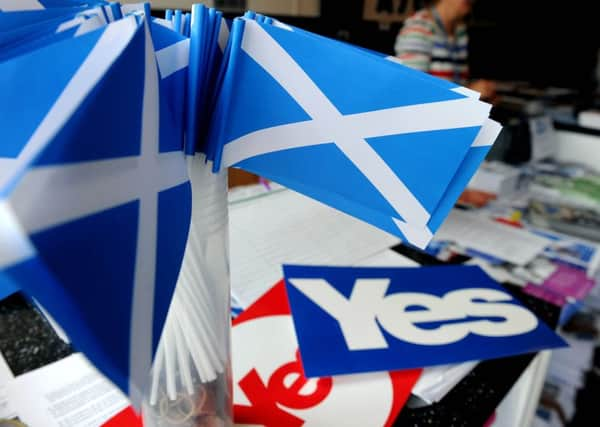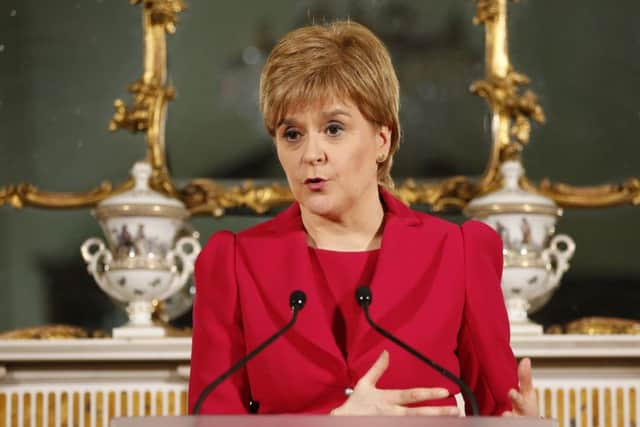Indyref2 v Scotref '“ Which hashtag will be most used ahead of second vote?


Twitter was where much of the argument took place when Scotland went to the polls to vote on independence in September 2014.
Then, the hashtag was simple – this was a referendum on independence, the Twitter character limit necessitated it should be shortened and so the hashtag #indyref was born.
Advertisement
Hide AdAdvertisement
Hide AdThis time, however, after Nicola Sturgeon’s announcement on Monday that there will be another referendum before the end of Spring in 2019, the picture isn’t as clear.


#Indyref2
In theory, this is the hashtag that makes the most sense, this is of course the second referendum in a short space of time.
As it is the sequel, Indyref2 does seem like the logical choice, but it seems that the First Minister and her aides are less keen.
Ms Sturgeon has been clear that the political landscape in Scotland has changed since the first vote, calling the post-Brexit reality we now found ourselves in is the ‘material change in circumstances’ that the SNP has been warning of.


With that in mind, the First Minister reportedly told her closest allies that she wanted to move away from the term indyref, as it was too close to the previous vote.
A source at the time told pro-independence paper the National: “She said this is a new referendum, we have a different set of circumstances, different reasons for having one and it is a completely separate matter.”
So from the SNP’s point of view, the referendum to take place next year or the year after is not a sequel, but a reboot.
In advance of their big announcement on Monday, the Scottish Government and the nascent SNP-led Yes campaign started using their own hashtag.
#Scotref
Advertisement
Hide AdAdvertisement
Hide AdThe Government proscribed hashtag is Scotref, which is still being tweeted regularly by senior SNP figures in a bid to knock #indyref2 off its perch.
The campaigning website which was set up in the immediate aftermath of the First Minister’s speech, was primarily a fundraising vehicle.
But it also urged pro-independence Twitter users to tweet their support of Ms Sturgeon’s decision by tweeting their preferred hashtag.
Early analysis indicates that the SNP’s attempts to influence online debate towards their favoured hashtag hasn’t been particularly successful.
It would appear that Scottish Twitter users are sticking to the more organic #indyref2, which is proving as popular as its successor (indyref was the most used hashtag in Scotland during 2014).
Indyref2 trended all through the day on Monday following Sturgeon’s speech, and was still trending late on Tuesday.
The #scotref hashtag, by contrast, was mainly being used by the SNP and its representatives – some of the top shared #scotref posts were written by SNP strategists or politicians.
One of the view critical tweets in the #scotref stream address the hashtag battle, with former Labour MP Tom Harris asking: “Do the SNP prefer the hashtag scotref to indyref2 because they don’t want to be reminded about the “once in a generation” promise?”
Advertisement
Hide AdAdvertisement
Hide AdMost pundits and media outlets continue to use indyref2, including the BBC, which is arguably one of the most influential organisations online.
Notable exceptions to this are publications and websites which were founded with the intention of furthering the independence cause, like The National and Common Space, whose journalists have religiously used the Scotref hashtag.
Like so much of the referendum campaign, this is an issue which isn’t likely to be resolved anytime soon.
It might not seem like much, but hashtags are important in reaching out to new audiences, and young people, whose votes will be crucial in deciding the outcome of the referendum.
So keep an eye on #scotref and #indyref2 – because their popularity might be an indication of how the country is thinking.
